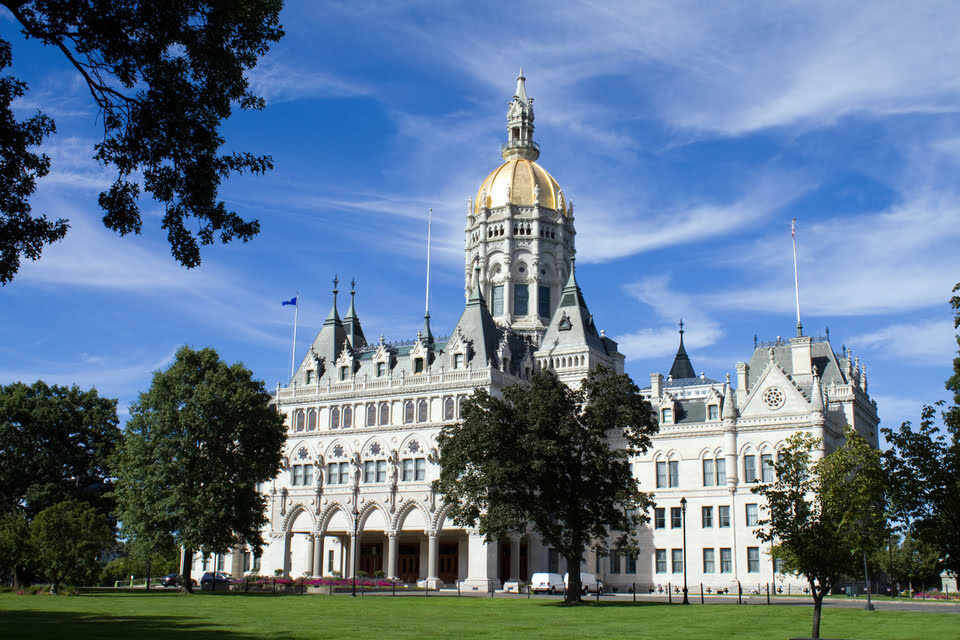
In a strong sweeping move to tighten the reins on online gambling, the Connecticut Senate’s General Law Committee voted unanimously this week to advance SB 1235 — a bill that would ban sweepstakes-style gaming operators, prohibit lottery ticket resales, and expand regulatory oversight over the state’s gambling industry.
The 22–0 vote sends a clear message: lawmakers are serious about closing the loopholes that let unlicensed operators profit from digital gambling while sidestepping state regulation, and leaving taxpayers with nothing in return.
The bill, now headed to the Legislative Commissioners’ Office, is one of three gaming-related measures Connecticut is pushing forward this session. Together, they mark a major shift in how the state plans to manage an increasingly digital and fast-moving gaming industry
Connecticut’s done playing nice with sweepstakes casinos. Under SB 1235, running one could land operators with a Class D felony, up to five years behind bars, and a $5,000 fine. Lawmakers aren’t just closing loopholes — they’re slamming the door.
SB 1235
But SB 1235 goes far beyond banning sweepstakes casinos — it’s a broad overhaul aimed at tightening control across Connecticut’s entire gambling landscape. The bill targets long-standing blind spots in regulation, modernizes outdated rules, and lays the groundwork for a more accountable, player-focused gaming industry.
Here’s what SB 1235 proposes:
- Resales of lottery tickets and third-party courier services would be banned, cutting off a quiet but growing side market that’s been chipping away at the state’s control over official lottery sales.
- It would expand the enforcement powers of the Commissioner of Consumer Protection, giving the agency more authority to issue fines, suspend licenses, and step in when operators cross the line.
- Stricter rules around gambling ads would be introduced, with a clear focus on stopping content that targets minors or at-risk communities.
- The bill also calls for formal hearings before any license suspensions, adding more structure and transparency to the enforcement process.
- The bill would set a limit on the “rake” , which is the share poker platforms take from each pot, to keep the game fair and prevent operators from taking an outsized cut.
- And in a move that could significantly expand online poker in the state, the governor would be authorized to join multi-state poker compacts, letting Connecticut players legally compete with opponents across state lines.
It’s a full package: tightening enforcement, raising accountability, and preparing the state for where the industry is clearly headed next.
Connecticut Joins National Push Against Sweepstakes
This move lines up with a broader national trend, as states across the country are coming down hard on sweepstakes gaming and other digital betting platforms that operate in legal gray areas..
In New Jersey, lawmakers are considering Assembly Bill A5447, which would impose steep penalties up to $250,000 per day, on any operator caught providing sweepstakes-style gaming services. Maryland, Mississippi, and New York are also exploring similar restrictions, with legislative proposals already in motion, with the aim of unregulated digital gambling activity. So far, only Washington and Idaho have implemented outright bans, making them the strictest states on the issue.
Much of the urgency stems from recent cases like High 5 Casino, which is facing growing legal fallout. In Washington, the company was hit with a $24.9 million judgment for running illegal online gambling disguised as free-play. In Connecticut, regulators filed over 1,000 charges after discovering the platform had taken nearly $1 million from residents, including over $300,000 from people who had placed themselves on the state’s voluntary self-exclusion list.
Advocates warn that these platforms often target young and financially vulnerable users, using misleading tactics and gamified systems with little to no oversight — a setup critics say is almost predatory.
Connecticut lawmakers appear to be taking the warning signs seriously. With SB 1235, their intention is pretty clear: get ahead of the problem before it becomes too big to handle, and close the regulatory gaps while they still can.
The Other Two Bills
SB 1235 is just one piece of a larger legislative puzzle. It’s part of a broader push to rethink how Connecticut handles gambling in today’s digital-first world. Two other bills moved forward this month as well, each tackling different weak spots in the current system — from betting limits to college campus advertising.
➤ SB 1464: Limiting the Bet
With a clean 21–0 vote, SB 1464 takes aim at one of the biggest challenges in sports betting: knowing when enough is enough.
- First, it would cap how much a person can bet on a single wager . This is a move designed to stop people from going all-in on impulse, especially in high-risk moments.
- Second, it requires the state to set up a toll-free helpline for gambling addiction, giving players direct access to support before things spiral.
- And finally, it gives the governor the green light to join multi-state casino gaming agreements, allowing peer-to-peer games (like online poker) to cross state lines legally — something that could boost traffic and competition in Connecticut’s regulated market.
The bill walks a careful line. It is trying to grow the industry without letting it grow out of control. Lawmakers are clearly saying that they want the upside of online gambling without the risks.
➤ CB 5271: Keeping Gambling Off Campus
The third bill, CB 5271, goes after a quieter but very controversial issue: gambling ads that target students.
Driven by concerns over how gambling is being promoted to college-aged users often through social media and sponsored content, the bill would:
- Ban gambling ads from showing up on public college campuses or any digital channels connected to them, including university websites, apps, and social media pages.
- Apply this rule across the entire Connecticut State University System, which includes six campuses and tens of thousands of students.
It’s a response to a growing trend where gambling operators use influencer-style marketing and algorithm-boosted ads to reach young people where they spend the most time: online. Lawmakers aren’t trying to block gambling altogether, but they are drawing a line: college campuses aren’t the place for casino promos.
Where Things Stand
All three bills have cleared committee stages and now head to their respective legislative offices for review. If passed, they could reshape Connecticut’s gambling landscape for years to come, making it harder for offshore or grey-area operators to lure in players, while protecting those who choose to engage with legal, regulated platforms.
In a space as fast-moving and fragmented as digital gambling, the unanimous passage of SB 1235 stands out — not just for its vote count, but for what it represents: a state taking back control, brick by brick (digitally of course).
